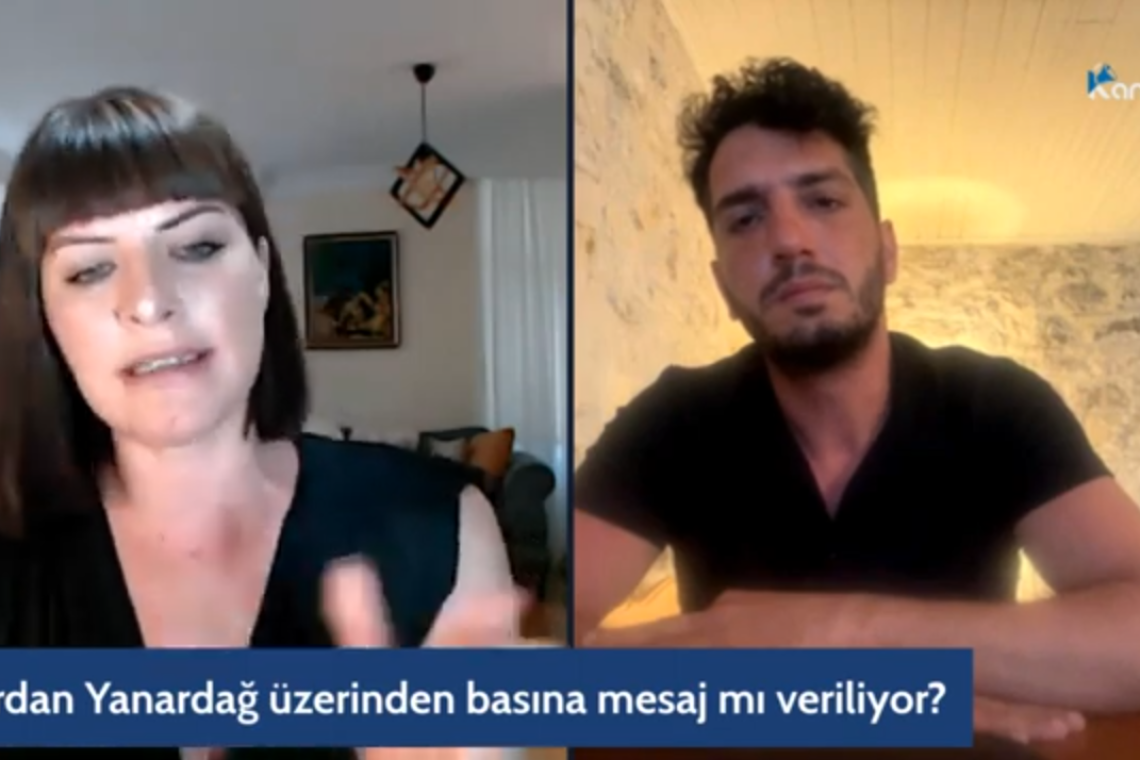MLSA Co-Director and jurist Veysel Ok says that the recent arrest of journalist Merdan Yanardağ, is politically motivated; however it is also an indirect result of the opposition's failure to grasp the crucial role of journalism. There was no substantive reaction from mainstream politics or renowned journalists to the incarceration of Kurdish journalists, he stresses. KEREM YILDIZ Veysel Ok, Co-Director of the Media and Law Studies Association (MLSA), voiced his conviction that unlawful detentions of journalists will persist until the opposition and influential journalists adopt a resolute stance on press freedom. Responding to Kampana News correspondent Zübeyde Sarı, on the detention of Merdan Yanardağ, Chief Broadcast Editor of Tele1 for stating that the imprisoned PKK leader Abdullah Öcalan should not be kept in solitary confinement,Ok said the detention was unlawful: "Yes, a judge may have delivered this verdict, but its content is devoid of any legal grounding, contravening both anti-terrorism law and the criminal procedure law. Given the absence of any legal evidence, apart from a recording of the program, it should not be recognized as a legal document." Ok emphasized that Yanardağ's s commentary doesn't amount to to endorsing the actions of an organization, saying, "Regardless of who the prisoner might be – be it Abdullah Öcalan – every prisoner has basic rights. It is a right stipulated in our criminal enforcement law, our constitution, and numerous court decisions and regulations. Stating this right cannot be categorized as terrorist propaganda." He also insisted that Peace Criminal Judgeships in Turkey have been used as an arrest mechanism since their establishment in 2014, and regularly implement access bans, indicating a broader policy. 'Each and every journalist must be supported' When discussing the public’s reaction, Ok suggested, "While protesting Merdan Yanardağ's incarceration, we must also acknowledge the plight of the over 60 journalists currently in prison. Support must be extended to shuttered TV stations, and we must stand against the daily access bans. This isn’t just about one individual, we must consider the situation as a whole. Today it's Merdan Yanardağ, but tomorrow it could be someone else." Ok proposed that this arrest indicates the government’s intention to maintain its stringent attitude towards freedom of speech ahead of the elections. He also highlighted the role of opposition parties, remarking, "Opposition parties, including the HDP and others discontent with the incumbent government, are failing to understand the significance of journalism. When journalists lose their jobs, TV stations close, and journalists get arrested, their political ambitions lose visibility. If journalism is abandoned and TV stations are shut down, to whom and where will the opposition propose a shift in power?" Without objections from the citizens, civil society, and opposition, Ok argued, democratic change and the establishment of rule of law and freedom in Turkey is improbable. He highlighted that the cornerstone of all rights – from walking safely on the streets, to women's freedom, the LGBT movement, and the Kurdish issue – is freedom of the press. 'Ground laid by an opposition party spokesperson' "If we aim to oppose this regime and yearn for a Turkey compliant with the constitution and law, the priority must be to protect and support journalists," Ok stated. "In the case of Merdan Yanardağ, an opposition party spokesperson laid the groundwork for this arrest, meaning they are not considering freedom of expression as a fundamental principle. We must defend the right to speech for everyone, regardless of our personal biases." 'Similar reaction not shown in case of other imprisoned journalists' Referencing the condemnation of Yanardağ's imprisonment by Kemal Kılıçdaroğlu, Ok noted the lack of a similar response for journalists who were detained and arrested in Diyarbakır prior to the election. He expressed concern about the narrowing scope for journalism, and the threat posed by categorizations such as Kurdish, sectarian, leftist, and LGBT media. "If you can't approach journalism in principle, you won't see the narrowing circle. Today it's them, tomorrow it could be you," he warned. 'Turkey now in the same category as Russia or Iran' When asked about the Western countries' insensitivity regarding press freedoms in Turkey, Ok highlighted Turkey's disregard for the decisions of the European Court of Human Rights and the Venice Commission. He suggested that Turkey's continued resistance to international institutions may have normalized its behaviour in the eyes of Western organizations, now seeing Turkey more in line with countries like Russia or Iran rather than part of the Council of Europe. This, according to Ok, is a dangerous development for Turkey, considering it is still part of that council.
News
Medya ve Hukuk Çalışmaları Derneği (MLSA) haber alma hakkı, ifade özgürlüğü ve basın özgürlüğü alanlarında faaliyet yürüten bir sivil toplum kuruluşudur. Derneğimiz başta gazeteciler olmak üzere mesleki faaliyetleri sebebiyle yargılanan kişilere hukuki destek vermektedir.



